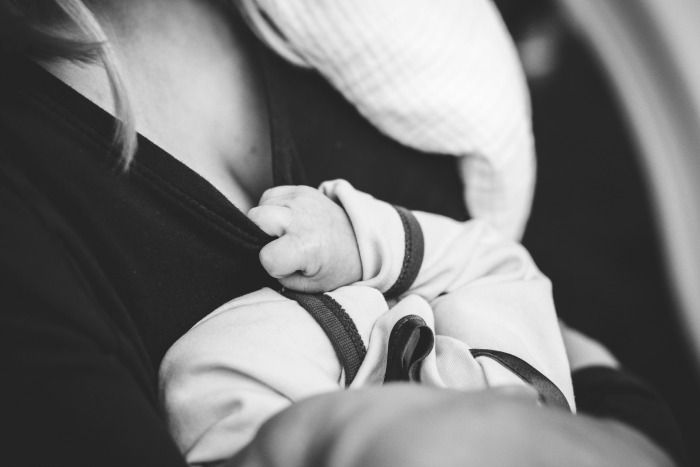When my son was three months old he had only lived in our house for six weeks. Two women in bright sweaters pulled up outside our home in a white SUV and marched—clipboards already out—towards our front porch.
I opened the door in my maternity leggings and a flannel shirt I had gotten at Target in the town where we lived while our son was in the NICU. My hair fell out of its bun and into my son’s face. Surprised, he pulled away from me, almost falling out of my arms.
We paraded back to his nursery, me and the brightly colored sweatered women, their clipboards, my son nestled between my arms.
The women were at our house to evaluate my son, who was born with craniofacial microsomia, a mosaic of different related conditions of the face and skull.
They were there to make sure he didn’t slip out of the steady grasp of medical charts and check-ins. They were there to take notes and then retake those same notes every few months, to hammer mile markers into the months of his life. I remember feeling as though his every move would be watched the way we were watching his easy, well-oxygenated breaths in and out of the tiny white tracheostomy tube in his neck.
It must have been around then that the cool fog of post-partum depression started to move across the horizon of my days.
I say, it must have been, but truth be told I didn’t see the fog for a year, when my son had finally taken so many breaths I didn’t need to count them. A few weeks after his first birthday, I woke up to the weather of my heart – that cool, steady fog, that long horizon line blurred in the distance.

For a while I refused to identify it as post-partum depression. I told myself I was in a period of depression related to exhaustion, to overwork and overworry.
Somehow I thought that if I linked it to my son Jack’s birth, then I linked it to mothering, to his complications, to him. I thought it meant that I had slipped away from my mothering, that I was incapable of some basic zeal or energy or joy that I believed came in the motherhood package.
So I told myself and whoever asked that my depression was unrelated to giving birth.
And then my daughter was born, and then suddenly she was three months old and the fog slipped across my arms as I held her at night feeling tired, but not just tired.
I sat in front of the bathtub while the water ran too hot then too cold then almost just right but not perfect, and she laughed on the bath mat and I cried in frustration that other people know when the water is the right temperature.
When I looked up, the horizon had blurred.
I have post-partum depression. I could try to uncouple the two words, but they persist.
And my son and my daughter persist alongside them, each with mile markers of goals met—rolling over, sitting up, crawling, swallow study, sleep study, capping the trach. And where they have a clear path I have a barely cut trail, the trees changing every season, paths that branch out in new directions.
I walk in what I think is a straight line through months of fog, only to find that I’ve traveled off the path, in a circle, and I’m not where I once began but I’m also not where I told myself I would be.
And for a moment I think I’ve lost sight of mothering, of my children, that they live in a world of steady progress and consistent emotion while I am on the road less traveled.
But I look down and the truth is they’ve journeyed alongside me.

I have not lost sight of them, or even really of myself; I have instead entered a kaleidoscope of shifting patterns, pebbles rearranging and refracting a light that can penetrate even the place I assume are impossible.
My children are not far away, my love for them is not extinguished or diminished but refracted through this new arrangement, it is marked by the footsteps of this uncut path, it is made new and—dare I hope?—made fuller.
I have at once too many metaphors and too few. I talk in images of kaleidoscopes, uncut paths, cool fog.
Maybe this is what depression calls forth in me: a desire to think in pictures, to make sense of this season in terms of other, more familiar experiences.
What I know now is that among these images stands the reality, that I have post-partum depression, which is one connected term. I move with and through it, as it accompanies me into the moments of my day, diaper changing and late night feeding and testing the temperature of the bathwater—
I’m still nestling my kids in my arms.
Hilary Yancey loves good words, good questions, and sunny afternoons sitting on her front porch with a strong cup of tea. She and her husband, Preston, and their two children, Jack and Junia, live in Waco, Texas, where Hilary is completing her PhD in philosophy at Baylor University. Her first book, Forgiving God: A Story of Faith, is on shelves now!



